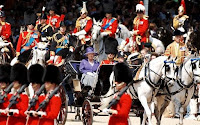Bits and bobs
Happy Bank Holiday week-end
Just a quick note to wish everyone a fantastic Bank Holiday weekend and Happy Labour Day/1st May for tomorrow too.
I am taking a little rest this weekend from writing to relax and enjoy myself, will be back to normal next Tuesday x
Saturday 30 April 2016
Saturday 23 April 2016
In the Kitchen

Saturday Kitchen: My Morning ritual review
Aaah le week-end is finally here and with it comes my Saturday morning ritual: settling down with a cup of coffee et une tartine to watch Saturday Kitchen with James Martin and guests. Or at least that what I used to enjoy before James left (sigh sigh).
The mood of the programme was upbeat, the guests usually very good/interesting and the recipes looked really yummy; most importantly was hosted by an handsome chef (James Martin for the un-initiated) who loves to cook with butter and cream.
What there was not to love?
Ok the egg challenge and jokes were a bit naff (sorry James) but it is Saturday morning and everything contributed to put you in a very good mood for the rest of the weekend.
Now it is week 4 post James and I can't quite get into the swing of. I did like Michel Roux Jr as the 1st week host (I was gutted when he left Masterchef The Professionals, BBC please do learn from your mistakes) but I didn't enjoy the second and third week at all.
For me James Martin was the glue that held the programme together and made the tone, like a musical maestro conducting an orchestra of very talented musicians to produce the best ever result.
To date I haven't seen anything coming close to that :-(

Saturday Kitchen: My Morning ritual review
Aaah le week-end is finally here and with it comes my Saturday morning ritual: settling down with a cup of coffee et une tartine to watch Saturday Kitchen with James Martin and guests. Or at least that what I used to enjoy before James left (sigh sigh).
The mood of the programme was upbeat, the guests usually very good/interesting and the recipes looked really yummy; most importantly was hosted by an handsome chef (James Martin for the un-initiated) who loves to cook with butter and cream.
What there was not to love?
Ok the egg challenge and jokes were a bit naff (sorry James) but it is Saturday morning and everything contributed to put you in a very good mood for the rest of the weekend.
Now it is week 4 post James and I can't quite get into the swing of. I did like Michel Roux Jr as the 1st week host (I was gutted when he left Masterchef The Professionals, BBC please do learn from your mistakes) but I didn't enjoy the second and third week at all.
For me James Martin was the glue that held the programme together and made the tone, like a musical maestro conducting an orchestra of very talented musicians to produce the best ever result.
To date I haven't seen anything coming close to that :-(
Friday 22 April 2016
Bits and bobs
St George's Day
Today is St. George's Day, England's national day.
St. George is the patron saint of England. His emblem, a red cross on a white background, is the flag of England, and part of the British flag.
St George was born to Christian parents in A.D. 270 (3rd Century) in what is now Eastern Turkey. He moved to Palestine with his Mother and became a Roman soldier, rising to the high rank of Tribunus Militum.
He later resigned his military post and protested against Emperor Diocletian (245-313 AD), who led Rome’s persecution of Christians which resulted in his imprisonment and torture.
St George was dragged through the streets of Nicomedia, Turkey, on the 23rd of April 303 AD and beheaded as he did not repent and abandoned his faith.
The Emperor’s wife was so inspired by his bravery and loyalty to his religion, that she too became a Christian and was subsequently executed for her faith.
It was not until 1348 that St George became the Patron Saint of England and not until 1415, St George’s Day was declared a national feast day and holiday in England.
After the union with Scotland at the end of the 18th Century, the tradition diminished and since has not been widely acknowledged and is no longer a national holiday.

I think it is important to celebrate and remember what makes us unique so we can understand and respect each other better, and then look for our similarities as human beings, strong in our own individuality.
Have a great day: Happy St. George's Day :-)
St George's Day
Today is St. George's Day, England's national day.
St. George is the patron saint of England. His emblem, a red cross on a white background, is the flag of England, and part of the British flag.
St George was born to Christian parents in A.D. 270 (3rd Century) in what is now Eastern Turkey. He moved to Palestine with his Mother and became a Roman soldier, rising to the high rank of Tribunus Militum.
He later resigned his military post and protested against Emperor Diocletian (245-313 AD), who led Rome’s persecution of Christians which resulted in his imprisonment and torture.
St George was dragged through the streets of Nicomedia, Turkey, on the 23rd of April 303 AD and beheaded as he did not repent and abandoned his faith.
The Emperor’s wife was so inspired by his bravery and loyalty to his religion, that she too became a Christian and was subsequently executed for her faith.
It was not until 1348 that St George became the Patron Saint of England and not until 1415, St George’s Day was declared a national feast day and holiday in England.
After the union with Scotland at the end of the 18th Century, the tradition diminished and since has not been widely acknowledged and is no longer a national holiday.

I think it is important to celebrate and remember what makes us unique so we can understand and respect each other better, and then look for our similarities as human beings, strong in our own individuality.
Have a great day: Happy St. George's Day :-)
Thursday 21 April 2016
Bits and bobs
Queen Elizabeth's Birthday
 The Queen celebrates two birthdays each year: her actual birthday on 21 April and her official birthday on a Saturday in June. Official celebrations to mark Sovereigns' birthday have often been held on a day other than the actual birthday, particularly when the actual birthday has not been in the summer.
The Queen celebrates two birthdays each year: her actual birthday on 21 April and her official birthday on a Saturday in June. Official celebrations to mark Sovereigns' birthday have often been held on a day other than the actual birthday, particularly when the actual birthday has not been in the summer.
To mark the real birthday of the Queen, a 41-gun royal salute it is fired by the King's Troop Royal Artillery in Hyde Park at 12.00 noon and a 62-gun royal salute at 13.00 at the Tower of London.
No other particular ceremony is carried out on this day.
 The official Sovereign's birthday on the other hand has been marked since 1805 by the Trooping of the Colour ceremony normally held on the second saturday in june.
The official Sovereign's birthday on the other hand has been marked since 1805 by the Trooping of the Colour ceremony normally held on the second saturday in june.
This year is a "special" birthday and 90th birthday celebrations will be one of the highlights of 2016 with events taking place in April, May and June, some of which are free and some of which require tickets, but the key is to plan ahead if you want to participate.
List of Events:
Queen Elizabeth's Birthday
 The Queen celebrates two birthdays each year: her actual birthday on 21 April and her official birthday on a Saturday in June. Official celebrations to mark Sovereigns' birthday have often been held on a day other than the actual birthday, particularly when the actual birthday has not been in the summer.
The Queen celebrates two birthdays each year: her actual birthday on 21 April and her official birthday on a Saturday in June. Official celebrations to mark Sovereigns' birthday have often been held on a day other than the actual birthday, particularly when the actual birthday has not been in the summer.To mark the real birthday of the Queen, a 41-gun royal salute it is fired by the King's Troop Royal Artillery in Hyde Park at 12.00 noon and a 62-gun royal salute at 13.00 at the Tower of London.
No other particular ceremony is carried out on this day.
 The official Sovereign's birthday on the other hand has been marked since 1805 by the Trooping of the Colour ceremony normally held on the second saturday in june.
The official Sovereign's birthday on the other hand has been marked since 1805 by the Trooping of the Colour ceremony normally held on the second saturday in june.This year is a "special" birthday and 90th birthday celebrations will be one of the highlights of 2016 with events taking place in April, May and June, some of which are free and some of which require tickets, but the key is to plan ahead if you want to participate.
List of Events:
- May 12-15: 90 minutes extravaganza with 900 horses and more than 1500 riders and performers each evening with the Queen attending the last evening
- June 10: Service of Thanksgiving at St Paul's Cathedral
- June 11: Trooping the Colour
- June 12: The Patron's Lunch
Happy Birthday Ma'am and thank you for your service.
Friday 1 April 2016
Bits and bobs
April Fools' Day
The exact origins of April Fools’ Day, also known as All Fools’ Day remain a mystery.
 |
| Pic from santabanta.com |
April Fools' Day
The exact origins of April Fools’ Day, also known as All Fools’ Day remain a mystery.
Some
historians speculate that April Fools’ Day dates back to 1582 when Pope Gregory XIII issued a papal bull
decreeing a new
standard calendar for Christian Europe that would take his name
and centuries later become the standard internationally in the 21st century.
Prior to the
15th century, Europe’s nations and city states operated using the Julian
calendar. The Gregorian calendar moved the date of the new year from April 1 to
January 1, among other changes. Catholic monarchies were naturally its earliest
adopters, though Protestant nations later followed suit.
Given the
nature of the reform some Europeans continued to celebrate the new year between
March 25 and April 1. April fools were those who still celebrated the holiday
in the spring, and were the subject of pranks and ridicule by those who
observed the new year months ago.
These
included having paper fish placed on their backs and being referred to as
“poisson d’avril” (April fish), said to symbolise a young, easily caught fish
and a gullible person.
Historians have
also linked April Fools’ Day to ancient festivals such as Hilaria, which was
celebrated in Rome at the end of March and involved people dressing up in
disguises. There’s also speculation that April Fools’ Day was tied to the
vernal equinox, or first day of spring in the Northern Hemisphere, when Mother
Nature fooled people with changing, unpredictable weather.
April Fools’ Day
spread throughout Britain during the 18th century which in Scotland became a
two-day event, starting with “hunting the gowk,” in which people were sent on
phony errands (gowk is a word for cuckoo bird, a symbol for fool) and followed
by Tailie Day, which involved pranks played on people’s derrieres, such as
pinning fake tails or “kick me” signs on them.
Whatever pranks you play today, be kind :-)
Subscribe to:
Posts (Atom)


